In Farewell, My Lovely, Philip Marlowe stares at a Rembrandt self-portrait on his office calendar. Raymond Chandler’s beloved private detective describes the face in the painting as “aging, saggy, full of disgust of life and the thickening effects of liquor,” yet with a “hard cheerfulness” he likes. This depiction, via metaphor, is the most comprehensive we get of Marlowe in Chandler’s seven proper novels, as each is written as a first-person narrative from the hardboiled P.I.’s point of view.
Which is all especially ironic, given that the character is associated with some of the most well-known, recognizable faces in Hollywood history. Over the last eighty years, no fewer than nine actors have portrayed the iconic smartass. We take a look at each one — and just as Philip Marlowe himself could repel or impress in equal measure—so goes the long history of game thespians willing to take up the mantle.
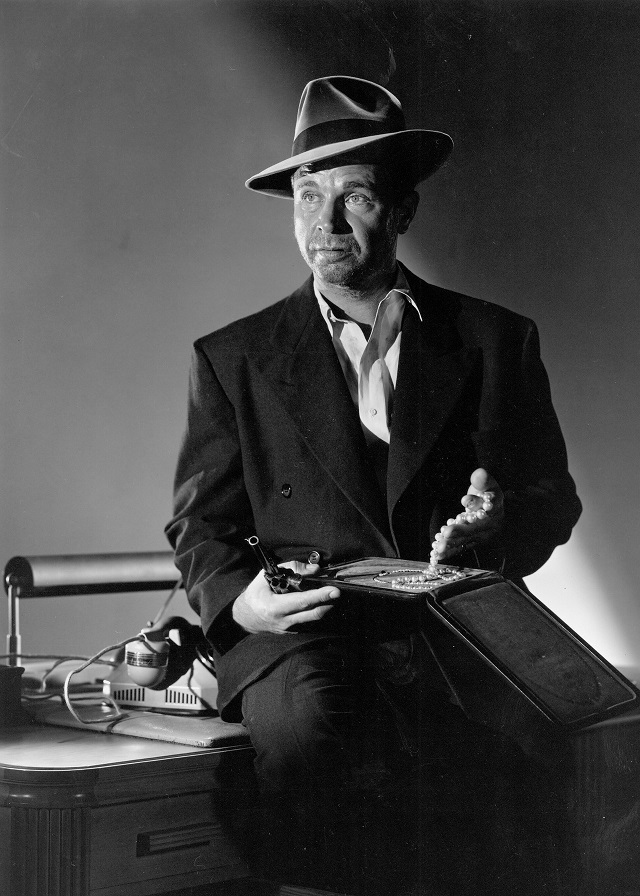
Dick Powell
MURDER, MY SWEET (1944)
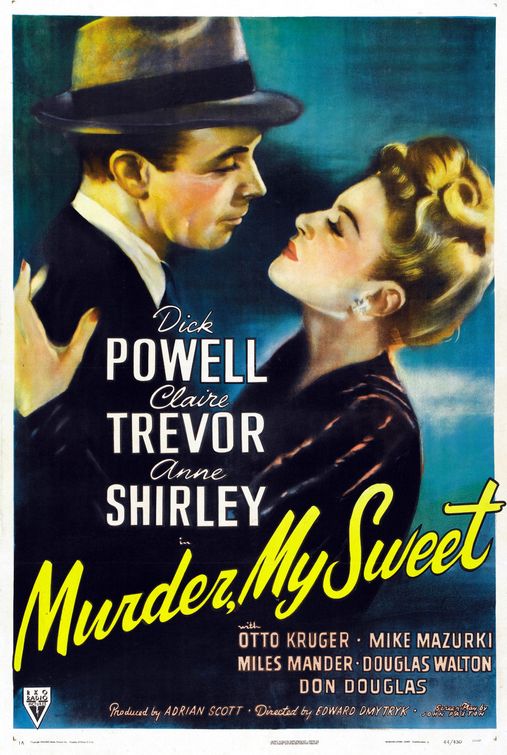
The Philip Marlowe from the novels is one tough son of a bitch. He is constantly sapped, drugged, and roughed up by police and mobsters — but never without getting in a quick one-liner. Yet, unlike many of his hardboiled brethren from the pulps or noir films, he is a private detective who’s incorruptible, living by a moral code that is often detrimental to his well-being. He never takes on divorce cases, will forgo what little money he can make by helping a client in need, never succumbs to blackmail even though he has ample opportunity, and will break the law to bail his clients out of a jam.
So what an odd choice it was for Edward Dmytryk to cast famous song-and-dance man, Dick Powell in MURDER, MY SWEET an adaptation of Chandler’s second novel, Farewell, My Lovely. The change in title itself is actually a direct result of Powell being cast, as the studio, RKO, felt the novel’s title would confuse the audience in thinking this was just another Powell musical.
The risk pays off. Powell turns in a performance for which all future Marlowe actors would be judged. His comedic chops serve him well with the musicality and wit of Chandler’s dialogue. He never quite hits the right note of hardboiled badass (which is why Chandler was not a fan of Powell), but his blue collar everyman approach exudes a nice pathos for when things get truly dark for Marlowe.
MURDER, MY SWEET gave Powell’s career a second wind. In the nadir of his musical career, he wanted to transition into more serious territory (even vying hard for Fred MacMurray’s role in DOUBLE INDEMNITY the same year). His Marlowe performance gave him that boost, as he would be typecast in detective roles for the next twenty years.
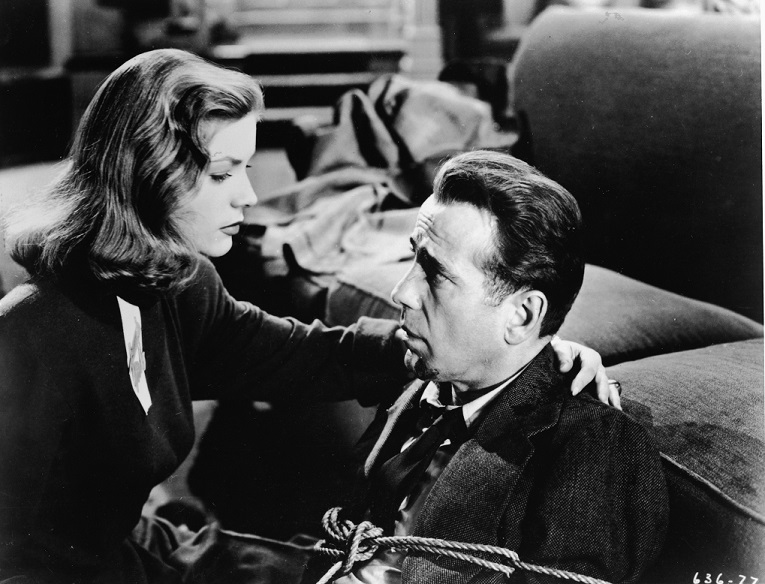
Humphrey Bogart
THE BIG SLEEP (1946)
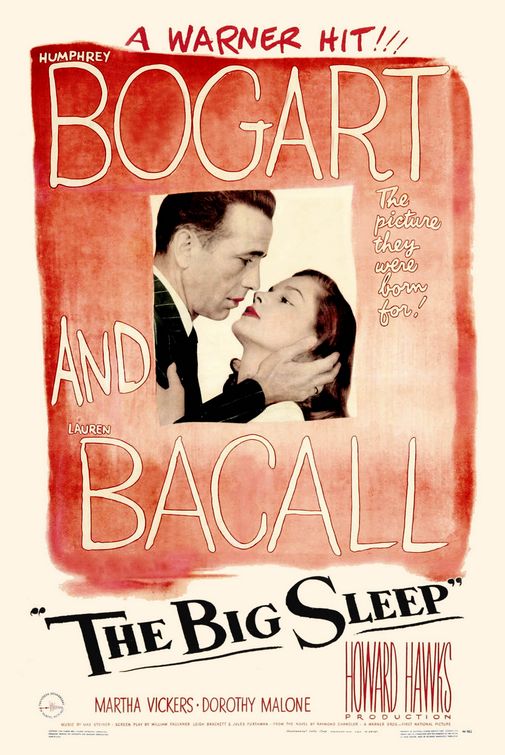
Howard Hawks’ THE BIG SLEEP is most remembered for the pairing of Humphrey Bogart and Lauren Bacall, rather than a Philip Marlowe adaptation. And for good reason. The real-life couple are electric — so much so, Hawks ordered reshoots to get more scenes with the two together.
Bogie, as usual, is charismatic as all hell. There is a thoughtfulness behind his eyes that Powell lacks. Not to mention that nobody can better handle the rapid-fire dialogue a Chandler adaptation necessitates. However, as an interpretation of Marlowe, he falls a bit flat.
For one thing, he is super-short. Marlowe is described as six-foot-one in the books, and the screenplay actually goes out if its way to poke fun at Bogart’s height, with characters constantly commenting on it.
And with Bogart, all you see is the celebrity, the stardom. Philip Marlowe is not supposed to be larger than life, just a small pawn in his grimy world. Where Powell has that everyman affect, Bogart radiates the opposite quality, providing a separation (or unrelatability) between character and audience that is unusual for the film noir genre.
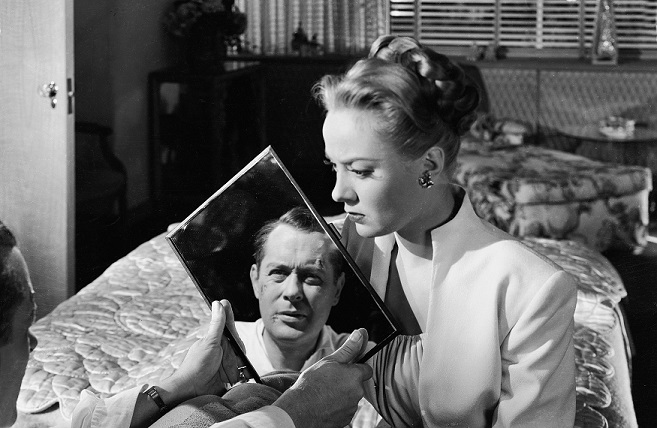
Robert Montgomery
LADY IN THE LAKE (1947)
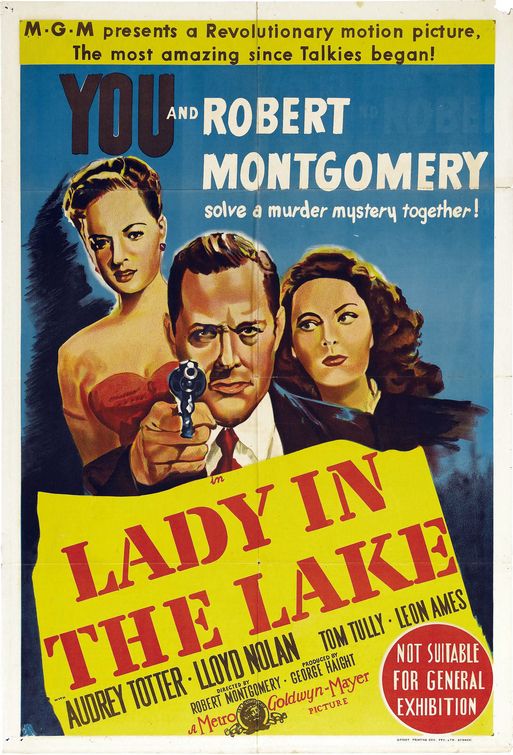
LADY IN THE LAKE is a pretty lousy film and an even lousier Marlowe depiction. That’s not to say, though, it’s not an interesting failure. Directed by and starring MGM stable actor, Robert Montgomery, the tagline says it all: “You and Robert Montgomery solve a murder mystery together.”
The gimmick, of course, is that the film is shot entirely from the viewpoint of Marlowe (Montgomery). Therefore, one cannot say if Montgomery’s performance is good or bad, as we’re just hearing a bunch of ADR-ed quips. Marlowe is all but removed from the film, as the onus is on all the other actors to perform for the camera. Only the most hardcore Marlowe fans could find anything of value in LADY IN THE LAKE.
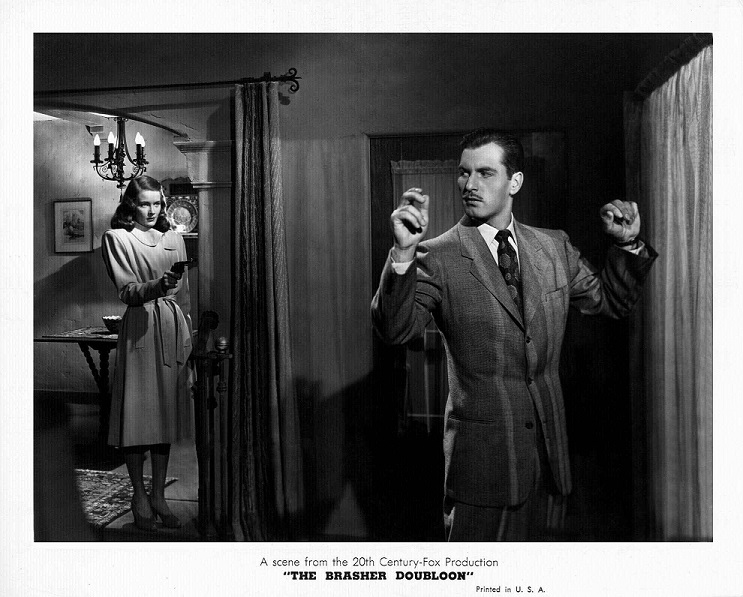
George Montgomery
THE BRASHER DOUBLOON (1947)
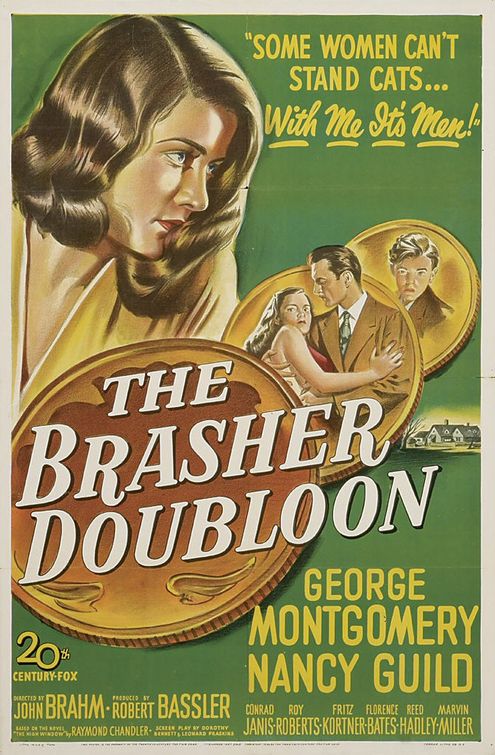
A loose adaptation of the novel, The High Window, George Montgomery (no relation to Robert) takes up the reigns of Marlowe after Fred MacMurray, Victor Mature, and Dana Andrews all turned down the role. The film isn’t a half bad, lil’ noir cheapie, but it has no intentions of giving us an honest Marlowe portrayal.
Forgoing anything that could be construed as hardboiled, Montgomery opts for a more flamboyant, Errol Flynn-esque leading-man performance. It bodes well for the movie, for the more swashbuckling hero-type hammers home the theme of Marlowe as a white knight saving a damsel in distress. But it’s nowhere in the ballpark of what we think of when we think of Philip Marlowe.
(Plus, there’s just something about Montgomery’s pencil-thin mustache that takes me out of it.)
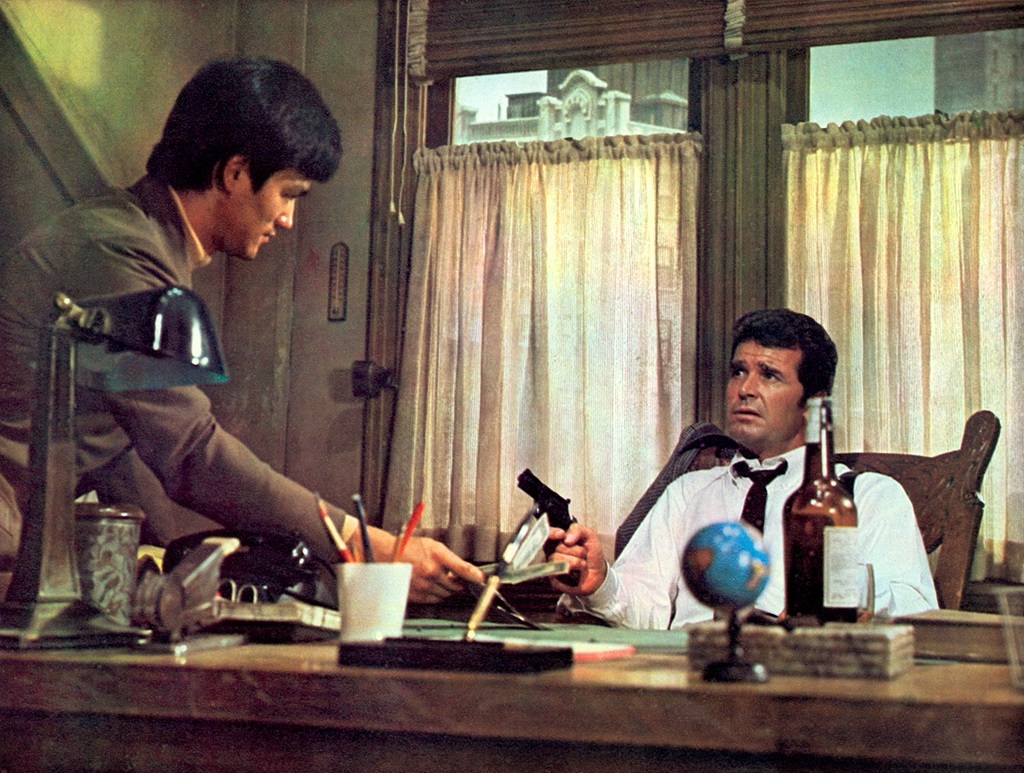
James Garner
MARLOWE (1969)
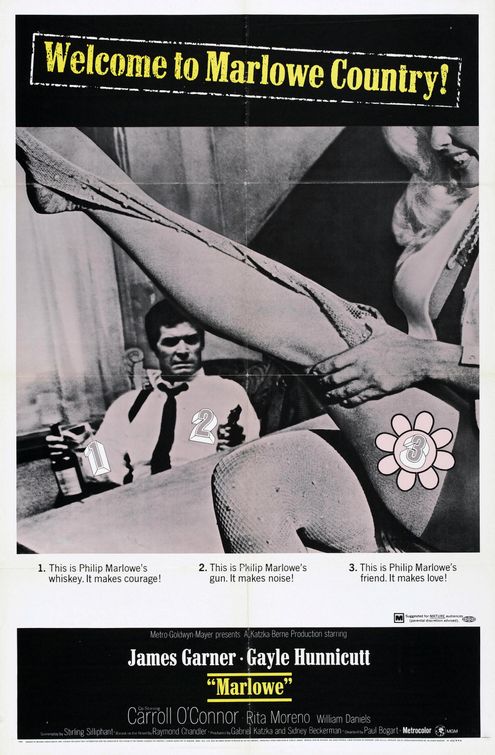
I’m sure most DG readers are familiar with MARLOWE, at least insofar that it’s Bruce Lee’s first American credit. Based on Chandler’s fifth novel, The Little Sister, it’s a bit of a mediocre misfire from an (oddly) uninspired Stirling Silliphant script. But James Garner does what he can with what he’s given and provides the best Marlowe performance since Dick Powell. He’s charming and funny and tough. Garner would also parlay this role into the hit television series, The Rockford Files.
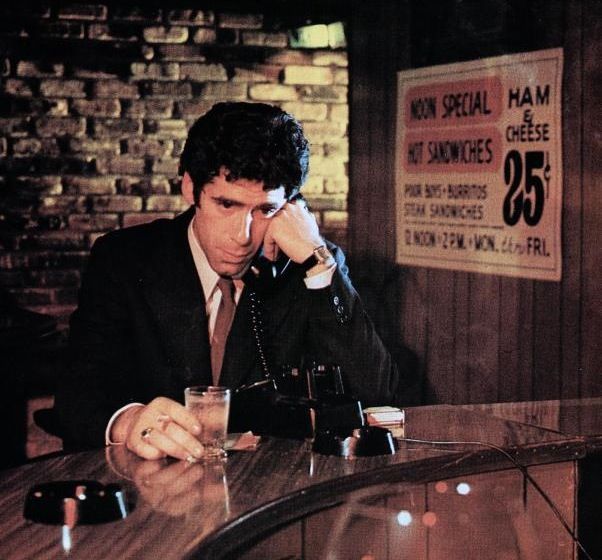
Elliott Gould
THE LONG GOODBYE (1973)
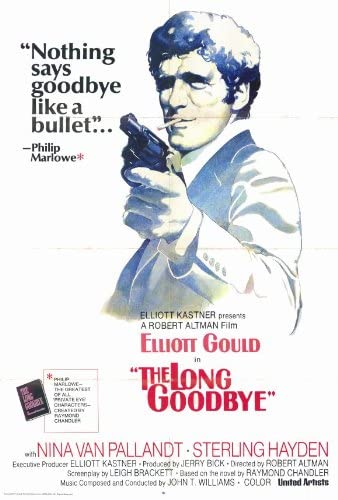
Now we’re talking. One of the best films of the 1970s, Robert Altman’s THE LONG GOODBYE benefits greatly from the strange casting of Elliott Gould as Marlowe. The film aims for that delicate balance: a parody of private detective film noir while also being a hard-edged neo-noir itself. And Gould’s wacky yet endearing performance sells it on both fronts.
The actor embodies the lackadaisical nature and absurdity of Altman’s relaxed directing style, elevating the Marlowe character to such a level as to almost be a counterculture, anti-authoritarian figure, reflecting the attitude of the American New Wave. That, with Gould’s sad world-weariness, helps the movie paint a picture of a world that has no use for Marlowe’s moral code or the American Dream.
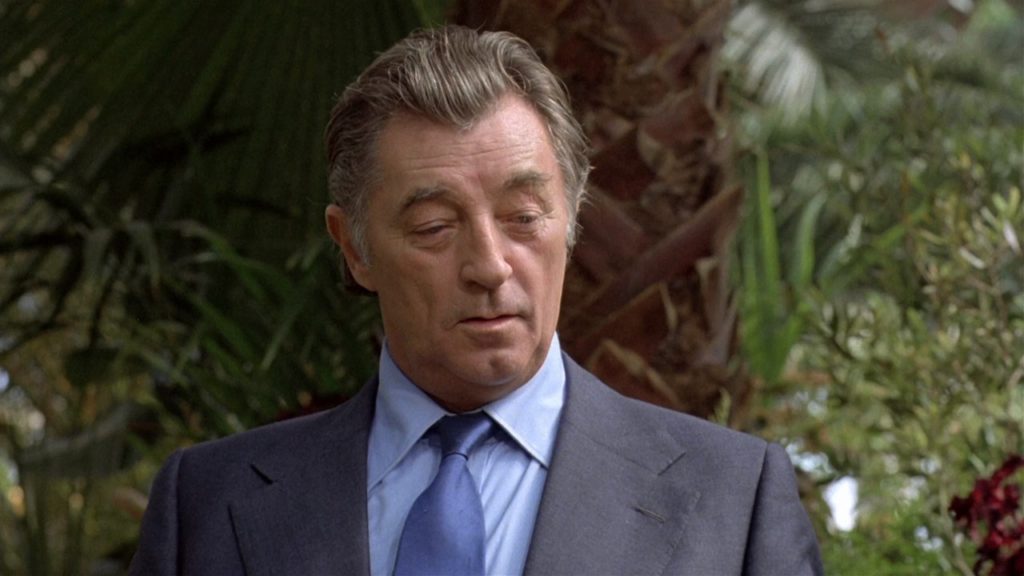
Robert Mitchum
FAREWELL, MY LOVELY (1975)
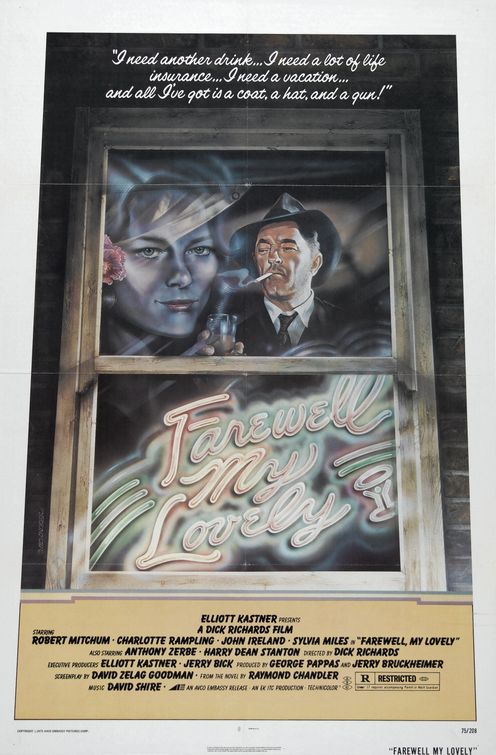
THE BIG SLEEP (1978)
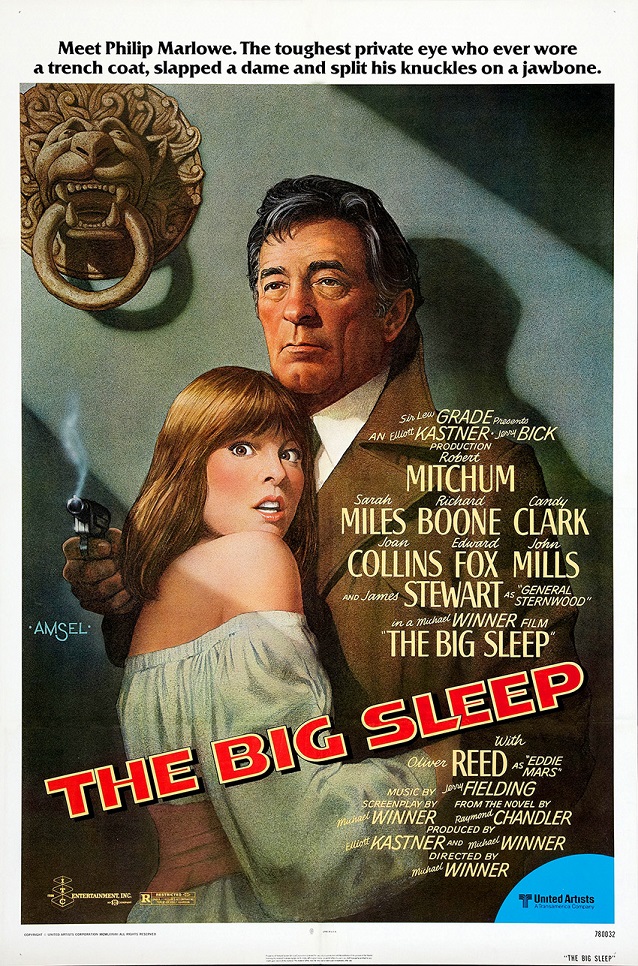
A nice, little bit of trivia: Robert Mitchum is the only actor to play Philip Marlowe twice. Unfortunately for him, they just happened to be two of the worst ones.
Though let it be said, Mitchum is always great despite the material, as he is the only thing that makes FAREWELL, MY LOVELY and THE BIG SLEEP even minutely watchable. While both films are more faithful to the novels than the two previous versions, they’re simply rote, unimaginative retreads with the occasional ’70s excess just to make things interesting.
And Mitchum isn’t a bad Marlowe. He can do hardboiled as good as the best of them, but he’s just too damned old — so damned old that it makes the entire affair feel really kind of anachronistic. After all, Marlowe is 38 in the novels, and Mitchum was 58 in 1975). It would be like, if instead of Roger Moore, they hired Rodney Dangerfield for A VIEW TO A KILL.
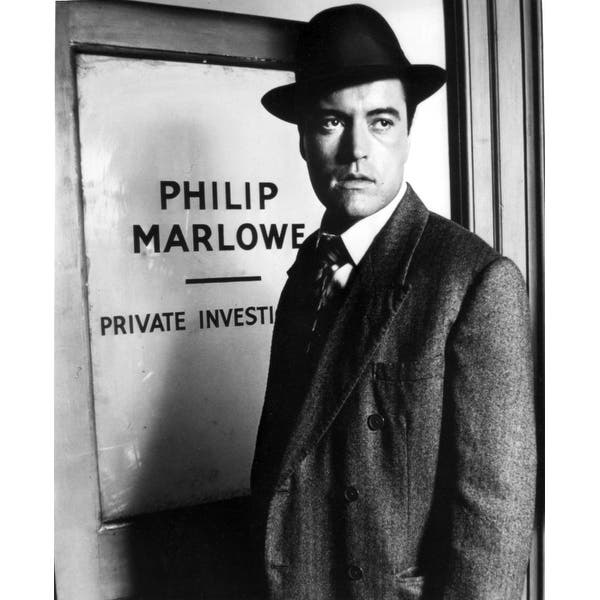
Powers Boothe
Philip Marlowe, Private Eye (1983-1986)
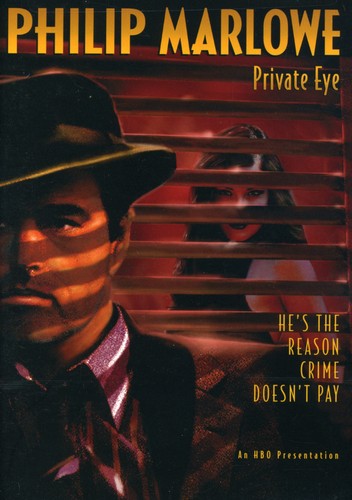
I don’t need to sell Powers Boothe to the DG crowd. He’s just The Man. And a pretty decent Philip Marlowe at that. The series Philip Marlowe, Private Eye ran on HBO for two seasons, more or less adapting various Chandler short stories. For anyone who’s seen Walter Hill’s SOUTHERN COMFORT and EXTREME PREJUDICE, you know Boothe is right in his wheelhouse playing the tough, calculated type with a dark edge.
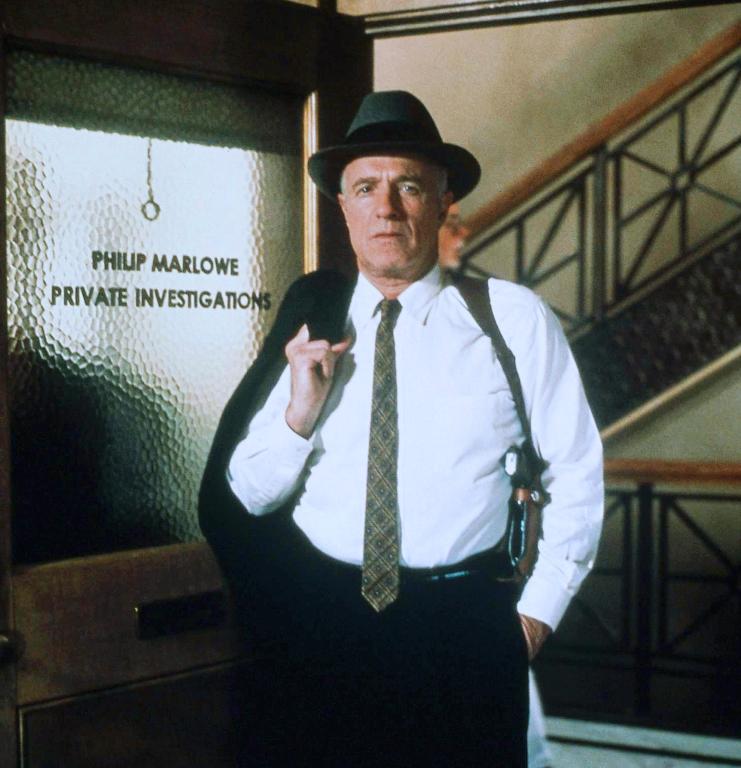
James Caan
POODLE SPRINGS (1998)
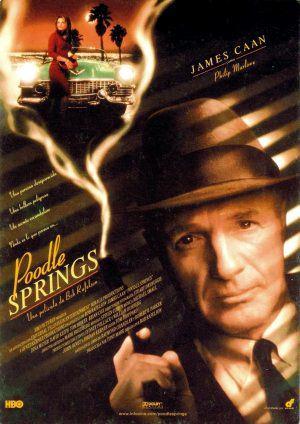
Now, watch me backpedal everything I just said about Robert Mitchum being too old. James Caan was also 58 when he played Marlowe in the HBO film POODLE SPRINGS. However, the point of the novel and film is that Marlowe is old; it’s a story about him trying to find peace and comfort in settling down with a wife and moving from L.A. to the desert retirement community of Poodle Springs (the stand-in for Palm Springs).
Caan is magnificent here. Unlike other Marlowe stories, there is actually an arc to his character. The film begins with a more subdued, domesticated Marlowe, as he is recently married and trying to wind down the more dangerous elements of his life. Then, when he gets drawn into his typical, perilous caseload and his marriage begins to unravel, the more hardboiled and smartass, laser-sharp quipster of old emerges. The question thus becomes whether it’s even possible for him to live a normal life.
A great film and a top-three Philip Marlowe performance.
Tags: bruce lee, Dick Richards, Dina Meyer, Dorothy Malone, Edward Dmytryk, Elliott Gould, George Montgomery, Howard Hawks, Humphrey Bogart, James Caan, Lauren Bacall, Leigh Brackett, Michael Winner, Noir, Powers Boothe, Raymond Chandler, Rita Moreno, Robert Altman, Robert Mitchum, Robert Montgomery

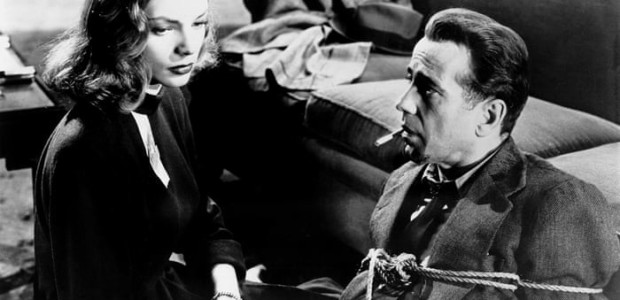
No Comments